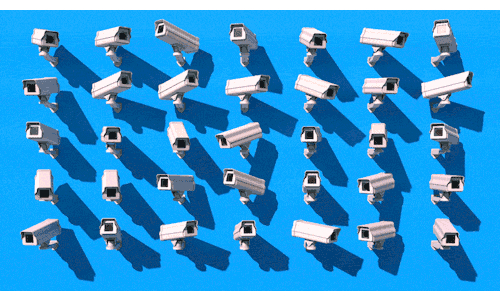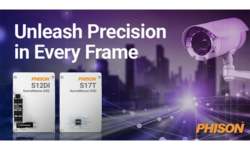Are Mass Video Surveillance Privacy Concerns Easing Amid Virtues?
Our planet is essentially under surveillance around the clock with security cameras, satellites, drones and more. Privacy concerns are undeniable, but all those imaging technologies are having a positive effect too.

Staggering. How else to encapsulate the sheer number of video surveillance cameras that permeate and record our daily lives? Pondering such a thing can cause one to immediately summon thoughts of Big Brother.
Yet any substantive dialogue about privacy rights and the perversions of an unregulated surveillance state can now include this question: In what ways are imaging technologies benefiting humanity around the world?
You don’t have to accept lesser expectations for privacy to incorporate video surveillance technology into an Orwellian discussion about privacy rights. In the vast deployment of imaging technologies there are applications doing good and positive things.
It’s a topic I read about recently in a National Geographic cover story by Robert Draper, titled, “They Are Watching You — and Everything Else on the Planet.” The journalist takes a deep dive into the debate about electronic surveillance and asks us to consider whether or not privacy has become little more than a memory.
Parker describes many layers of surveillance equipment: Roughly 106 million security cameras are sold each year. More than three million ATMs around the world record users’ banking activities. Tens of thousands of license plate recognition (LPR) cameras are deployed. Add to that all the police body cameras, dash cams, video doorbells. Facial recognition. And global fleets of drones operated by consumers, governments and militaries.
Of course, all that barely begins to scratch the surface. It’s the application of technology and its capabilities and ingenuity that especially strikes me. Parker writes about Planet, a San Francisco-based company founded by three former NASA scientists. This is a decidedly for-profit company with a couple hundred shoe box-size satellites that each snap two images of the Earth per second. When conditions are right the armada can picture the entire planet in a single day.
Have a need to track the development of road or building construction in South America? Maybe the expansion of illegal palm oil plantations in Africa? Planet is your go-to for a price. As an example of its frequent pro bono involvement with nonprofits, the company has provided images to Amnesty International that document attacks on Rohingya villages by security forces in Myanmar.
There are other examples of beneficial use cases and security applications cited in the article as well, some in far flung locales and others right in our own backyard. Thermal imaging devices are deployed by rangers in Kenya’s Masai Mara National Reserve to detect nighttime poachers. The Department of Homeland Security has tested a cargo-visualizing method invented by two MIT physicists at the Port of Boston that uses a technique known as nuclear resonance fluorescence. Without opening a freight container, the device can distinguish “the difference between soda and diet soda, natural and manufactured diamonds, plastics and high-energy explosives, and nonnuclear and nuclear material,” Parker writes.
Maybe the most impactful examples of how video surveillance technology benefits society is as a crime-solving and crime-prevention tool. Just consider the 2005 London subway and 2013 Boston Marathon bombings for starters.
Do we accept an Orwellian future? Or, as Parker attempts to reckon, “is there a more hopeful outlook, one in which a world under watch in many ways might be better off?”
If you enjoyed this article and want to receive more valuable industry content like this, click here to sign up for our FREE digital newsletters!

Security Is Our Business, Too
For professionals who recommend, buy and install all types of electronic security equipment, a free subscription to Commercial Integrator + Security Sales & Integration is like having a consultant on call. You’ll find an ideal balance of technology and business coverage, with installation tips and techniques for products and updates on how to add to your bottom line.
A FREE subscription to the top resource for security and integration industry will prove to be invaluable.








